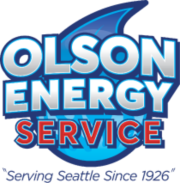-
3 Simple Ways to Make Your HVAC More Energy-Efficient
Have you ever stopped to wonder just how much energy you use heating and cooling your Seattle home every month? In fact, according to the U.S. Department of Energy , nearly half of all of the energy you pay for in your household goes toward running your heating, ventilation, and air conditioning . This means that making your heating and cooling systems run more efficiently can help you both reduce your household’s environmental impact and keep your energy expenses down. Here are some simple steps you can take for a more energy-efficient HVAC system:
Buy a programmable thermostat.
Purchasing and installing a programmable thermostat is a great way to rein in your energy usage at home. Programmable thermostats let you schedule different settings throughout the day, ensuring that you aren’t needlessly running your HVAC system late at night, or when nobody is home. The latest programmable thermostats even allow you to adjust them remotely using Wi-Fi.
Change out your air filter.
When your air filter gets clogged up with a lot of dirt and debris, it means that your HVAC system won’t be running as efficiently. Fortunately, you can forestall that problem by making sure to change out your old air filter for a new one once every month or so. The more heavily you’re relying on your air conditioning or furnace, the more frequently you will want to change your filter.
Upgrade your entire HVAC system.
The older your air conditioner or furnace is, the more inefficient it is likely to be. As time goes on, this can turn into an expensive problem. One of the best ways to reduce your energy usage is to replace your old HVAC system with a newer, more energy-efficient one. Make sure that any new HVAC equipment you buy has been certified by Energy Star, which signifies that they are among the most energy-efficient products available.
-
Should You Switch to a Ductless Mini-Split?
If you’re looking for a smart and cost-effective alternative to having a central HVAC system in your Seattle home, you might want to consider the potential of a ductless mini-split system . A mini-split system is a type of HVAC system that works without the ductwork that central systems require to function. Instead, a mini-split system uses an outdoor unit and an indoor unit—connected by wires through a small hole in the wall—in tandem to heat and cool one or more rooms inside your home. Mini-split systems are easy to add to homes that you’ve just moved into, and they’re a terrific way to upgrade your current house as well. If you don’t want to install ductwork, or if your home is small, a mini-split system may be a better option for you than a new central HVAC system. Mini-split systems are one of the most efficient climate control options available, and they are simple and convenient to operate.
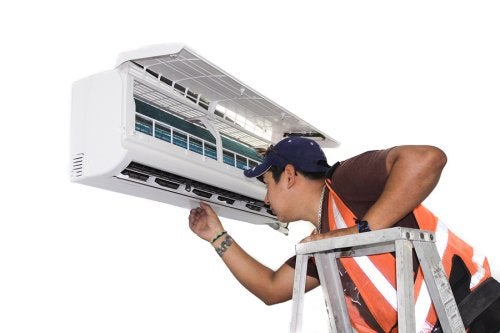
-
Tankless Water Heaters to Consider for Your Home
Tankless water heating has surged in popularity in recent years as homeowners across the globe seek energy-efficient and space-saving solutions for their households. With a broad range of options available, you may be unsure which tankless water heater is best. Follow this guide to help you understand the fundamentals, weigh the pros and cons, and consider the types of tankless water heaters for your home.
How Do Tankless Water Heaters Work?
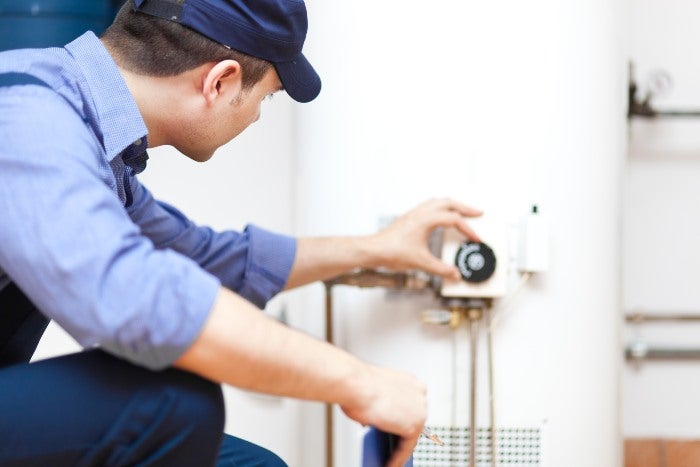
Unlike conventional storage tanks that maintain a large volume of hot water, tankless water heaters generate hot water on demand. They use high-powered gas burners or electric elements to rapidly heat water as it flows through the unit, delivering freshly heated water directly to your faucet without storing it in a tank. This on-demand functionality is highly efficient, space-saving, and eco-friendly.
Pros and Cons of Tankless Water Heaters
Before you decide to switch to a tankless water heater, carefully weigh the pros and cons of this technology.
Pros
- Efficiency and savings: Tankless water heaters only operate when needed, making them highly energy efficient. In fact, they reduce energy consumption by an average of 24 to 34 percent, leading to significant utility savings.
- Longevity: Tankless water heaters are designed for durability, with a lifespan of up to 20 years—around double that of traditional tank models. This longer operational life adds to your long-term savings.
- Small installation footprint: Unlike bulky tank water heaters, tankless units are compact and can be wall-mounted indoors or outdoors, providing more installation flexibility. This frees up valuable space in your home, making tankless units particularly advantageous for smaller residences.
- Continuous hot water supply: Because tankless units provide hot water on demand, you never run out, even after extended usage. This ensures a constant supply of hot water for endless back-to-back showers.
Cons
- Higher initial costs: Tankless water heaters cost more to purchase and install than traditional models. The potential need to upgrade your electrical system or ventilation setup adds to the upfront costs. Even so, the ongoing energy savings and long lifespan of tankless water heaters can offset the higher upfront costs, making them a financially sound investment.
- Limited output: While they provide continuous hot water, tankless heaters struggle to keep up if multiple taps are in use simultaneously. This reduced flow rate could be problematic for large households or homes with high simultaneous hot water demand.
- Inconsistent temperatures: If you shut off the water or lower the flow rate to a trickle, the tankless unit turns itself off. This means when you restore the hot water flow, the temperature may drop before it becomes hot again. This inconvenient phenomenon, called a “cold-water sandwich,” may still be worth it to enjoy significantly more efficient water heating.
Types of Tankless Water Heaters
Even within the category of tankless water heaters, you have a few styles and fuel types to choose from:
- Whole-house tankless water heaters are robust enough to cater to the hot water needs of an entire household. They are installed in a central location, often where your old water heater was installed, and service every faucet and fixture in your home.
- Point-of-use tankless water heaters supply hot water to a single point, such as a bathroom or a kitchen sink. They are compact and easy to install within the cabinet or high on the wall. This can be a cost-effective solution for adding hot water functionality to specific parts of your house while eliminating the wait time for hot water.
- Electric tankless water heaters are easy to install because they don’t require ventilation. However, they may draw substantial power, calling for an electrical system upgrade in some cases. These units are generally well-suited for smaller homes or point-of-use applications.
- Natural gas tankless water heaters are more powerful than electric models, capable of supplying larger volumes of hot water. However, they require proper ventilation to ensure safe operation, which limits where they can be installed.
- Thermostatically controlled tankless water heaters are sophisticated models that use flow-based power modulation to maintain a more precise temperature despite changes in flow rate. This makes every shower more comfortable and helps prevent scalding at the tap, a significant benefit in homes with young children or older adult residents.
Tankless Water Heater Solutions in Seattle, WA
Olson Energy Service is a trusted name in HVAC, electrical, and plumbing services. We have been serving Seattle since 1926 as a family-owned and operated business. Our skilled and experienced technicians can help you select a tankless water heater and conduct a professional installation, ensuring your complete satisfaction for years to come. If you’re ready to go tankless, please call us today at 206.782.5522 or contact us online to request tankless water heater services in Seattle, WA.
-
Does Your Home Have a Hardwired Smoke Detector Yet?
In order to protect yourself and your loved ones against the dangers of a household fire, it is critical to install smoke detectors throughout your home. A contractor that repairs boilers and air conditioners serving Seattle can also provide you with a new smoke detector installation. To improve the safety and reliability of your smoke detectors, it may also be a good idea to talk to your HVAC contractors about the possibility of choosing a hardwired smoke detector.
A hardwired smoke detector offers many benefits to your household. Unlike battery-powered smoke detectors, which will cease to function if their batteries run out of power, hardwired smoke detectors are connected to the main electrical grid of your property. Whether your fire has been caused by a furnace problem or another type of emergency, your hardwired smoke detector will immediately alert you to the presence of fire dangers. Since hardwired smoke detectors also contain battery backups, they will function properly with or without power from your home’s electrical system.
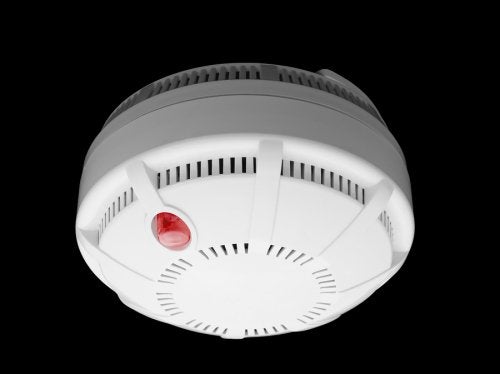
““
-
How Indoor Air Quality Can Affect COPD
According to The National Heart, Lung and Blood Institute, more than 120,000 annual deaths in the United States are attributed to chronic obstructive pulmonary disease (COPD), a term used to describe a group of health conditions characterized by breathing difficulty. These include severe asthma, chronic bronchitis, and emphysema. Unfortunately, many people who have COPD do not even realize that they have it. COPD can be worsened by a number of invisible pollutants in the air inside a home, including mold spores, dust mites, chemical fumes, and pollen. The quality of your indoor air has a significant effect on your quality of life, particularly if you have COPD. If you’re concerned about your indoor air quality, a professional air duct cleaning by an HVAC company in Seattle is the perfect place to start.
““
-
When to Replace Your HVAC?
With the spring season just around the corner, now is an important time to consider whether you need to replace your air conditioner. In this video from Angie’s List, you will receive valuable tips and information about how to know when to replace your HVAC near Seattle . As a general rule, you should replace your air conditioning or heat pump when repairs become cost prohibited.
Whether you are gearing up to replace your air conditioner, or you simply want to service your HVAC system, you will want to make sure to book your appointment with an experienced contractor. A team of trained technicians can help you decide when it is the right time to replace your HVAC system with a brand new unit.
““
-
Building the Perfect Fire
A fireplace can make for a nice aesthetic addition to your home, but it can also give your furnace in Seattle a break if you use it properly. If you want to make the most of your fireplace insert, you should know how to build a fire so it continues to warm your home without causing pollution or hazards to your home. Watch this video on building the perfect fire.
Before you can build a fire, you’ll need firewood. Gather a bunch of dry, chopped lumber and start laying the pieces down. Place the biggest pieces on the bottom, and then lay down another layer in a perpendicular direction. You can then continue to build up layers of firewood, being sure to use progressively smaller pieces of lumber as you go. Once you’re done, you can light the tinder at the top and enjoy a cleaner and more efficient fire.
-
How to Maintain Your Boiler?
Taking care of your boiler near Seattle will help it last for as long as possible, and it will keep it efficient throughout that time as well. While some aspects of boiler maintenance may require the help of an HVAC professional, there are also steps that you can take on your own. A properly maintained boiler will keep your home nice and comfortable throughout the whole year. Feel free to keep reading if you’d like to find out how to maintain your boiler.
You can work with your heating and cooling professional to maintain your boiler, but it is ultimately up to you to keep your appliance running. It’s a good idea to clean your boiler at least once a month. Check your boiler’s flame regularly to make sure it is still blue; if it’s not blue, call your heating professional and have the problem diagnosed. Even if a warm front comes in and you don’t need your boiler as often as you’d expect, it helps to continue using it to ensure that it doesn’t end up seizing. Talk to your specialist to find out how you can keep your boiler efficient and save money on your energy bills.
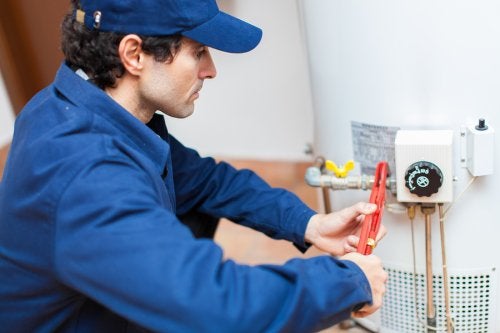
-
The Importance of Preventative HVAC Maintenance
The holiday season is just around the corner, and now is a fantastic time to schedule preventative maintenance for your HVAC system near Seattle. Rather than waiting for your heat pump to fail and leave you in the cold, you can prevent a furnace or heating emergency by scheduling a service appointment before the peak heating season arrives. Along with cleaning and servicing your heat pump or furnace, your technician will also be able to check for any indications that your system may be on the brink of failure. Read on for an overview of the importance of scheduling preventative HVAC maintenance.

Improve System Efficiency
While preventative HVAC maintenance can help you catch repair problems, this service can also boost the efficiency of a system that is already in proper working order. When your technician comes to perform a preventative service before the start of winter, he will take the time to change your air filters and lubricate its moving parts. With these simple services, you can help to improve your HVAC’s efficiency dramatically.
Prevent System Failure
When your HVAC system suddenly stops working in the dead of winter, you may have a heating repair emergency on your hands. With preventative maintenance for your HVAC system, you can rest assured that your system has been safeguarded from failure. During your preventative maintenance appointment, your technician will take the time to check out your furnace or heat pump for any signs that a maintenance emergency may be imminent.
Boost Indoor Air Quality
Indoor air quality is an important concern for any homeowner. If you or your loved ones experience allergies or other respiratory issues when you are indoors during the winter, you may want to set up a preventative HVAC repair service. When your technician replaced your air filter, he will be able to make sure that your system is blowing clean, clear air throughout your home. After learning about these great benefits, be sure to set up your preventative service before the winter season gets underway.
““
-
Signs a Heat Pump Is Right for Your Home
When you start thinking about heating and cooling appliances for your home, make sure you don’t overlook the benefits that a heat pump near Seattle can offer. Keep in mind, however, that not every home is a suitable candidate for a heat pump. If yours qualifies, this option can help you save energy and money as well as handle both heating and cooling. Keep reading to learn about a few signs that a heat pump is right for your home.
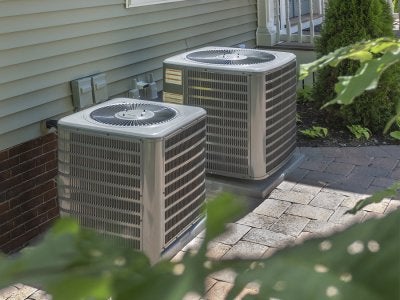
You live in the right environment.
The purpose of a heat pump is to transfer heat from one location to another; however, you will need a source of heat in order to move it elsewhere. Although this type of heating and cooling unit does rely on electricity to some extent, it primarily uses the surrounding environment. If you have extensive heating or cooling needs that the outdoor environment cannot help satisfy, you might want to choose another system. If your needs are on the moderate side and you live in the right area, however, a heat pump can be a great way to save energy.
You want to save energy.
Most heating and cooling appliances will generate heat or cool generated air. For this reason, HVAC appliances often account for a substantial amount of the energy that your household consumes. Heat pumps are unlike these alternatives because they only do a very small amount of heating; the rest of the process involves moving the air around instead. This can cut your energy bills down by a wide margin, which allows you to use your funds for other pressing purposes. A heat pump is also an environmentally-friendly choice in this way, making it great for those who are trying to go green.
You’re looking for versatile equipment.
If you are looking for a piece of equipment that can heat and cool your home rather than one or the other, a heat pump may be right for you. You can use this appliance all year long to efficiently and effectively keep your indoor air at a comfortable temperature for your family.
RECENT POSTS
categories
- Uncategorized
- Air Conditioner
- Fireplace Inserts
- Fireplace Insert Installation
- Air Conditioning Installations
- Air Conditioning Units
- Air Conditioner Maintenance
- HVAC Professionals
- Heat Pump Installation
- Heating and Cooling
- HVAC Unit
- Heat Pumps
- Furnace
- Furnace Service
- Tankless Water Heaters
- Water Heaters
- Energy Efficiency
- HVAC Contractors
- Olson Energy Service
- Mini-Split Systems
- Ductless Air Conditioner
- Residential Services
- Seasonal Boiler Maintenance
- HVAC Maintainance
